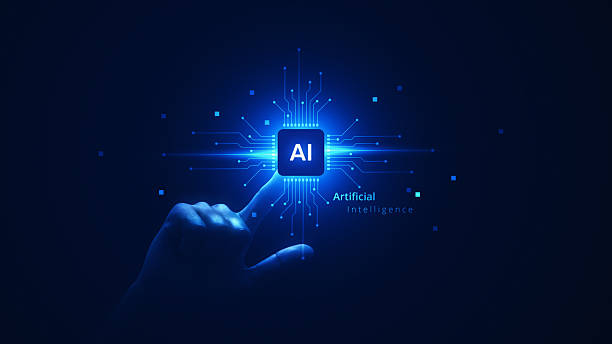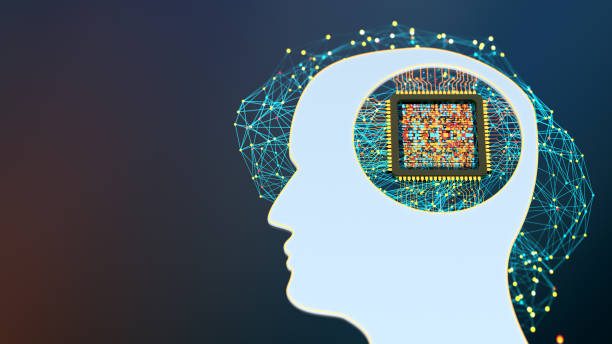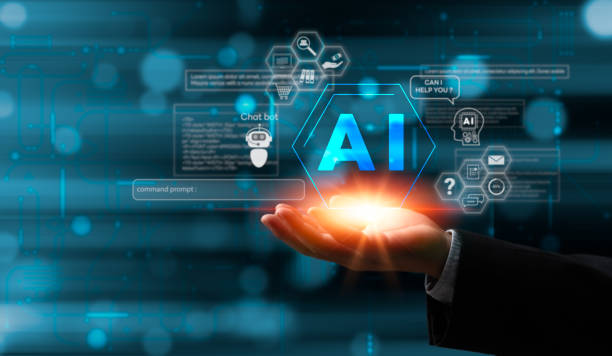What is Artificial Intelligence and How Does it Transform the World of Work?

#Artificial_Intelligence (AI) is rapidly becoming a transformative force across various industries.
From automating simple tasks to solving complex problems, AI holds immense potential to boost productivity, reduce costs, and create new opportunities.
However, this transformation raises important questions about the future of AI careers.
How will AI change existing jobs? What skills are essential for success in the future world of work? And how can we leverage this technology for the benefit of all? This chapter explores these questions and provides an overview of AI’s impact on the world of work.
In this context, a correct understanding of basic AI concepts and their applications across various industries plays a key role.
In this regard, automation of repetitive and tedious processes by AI provides an opportunity for the human workforce to focus on more creative and strategic tasks.
Furthermore, customer services have significantly improved and become more accessible through the use of chatbots and intelligent response systems.
These developments not only increase efficiency but also provide a better customer experience.
Therefore, embracing and adapting to these changes is crucial for survival and progress in the future of AI careers.
Tired of losing customers due to poor e-commerce website design? With Rasaweb, solve this problem forever!
✅ Increase sales and visitor-to-customer conversion rates
✅ Smooth and engaging user experience for your customers⚡ Get free consultation
The Role of Artificial Intelligence in Various Industries: From Medicine to Manufacturing
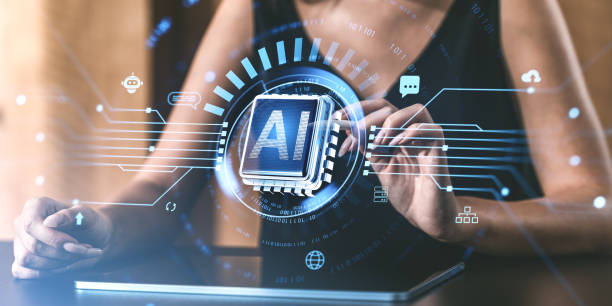
Artificial intelligence is penetrating all industries and profoundly impacting how work is done.
In medicine, AI assists in more accurate disease diagnosis, new drug development, and personalized treatments.
In manufacturing, AI significantly boosts productivity by automating processes, improving product quality, and reducing waste.
In finance, AI helps in fraud detection, risk management, and providing personalized financial advisory services.
In the transportation sector, self-driving cars and intelligent traffic management systems enhance safety and efficiency.
This diversity of applications indicates that the future of AI careers across different industries requires specialists with diverse skills.
For instance, in the manufacturing sector, AI-powered robots can perform repetitive and hazardous tasks, while engineers can focus on designing and optimizing processes.
In the financial sector, AI algorithms can identify complex patterns in data and provide early warnings about potential fraud or risks.
In every industry, AI plays a crucial role in increasing efficiency, improving decision-making, and creating new opportunities.
Therefore, understanding this role and acquiring relevant skills is essential for success in the future of AI careers.
Jobs at Risk and New Jobs: What to Expect?
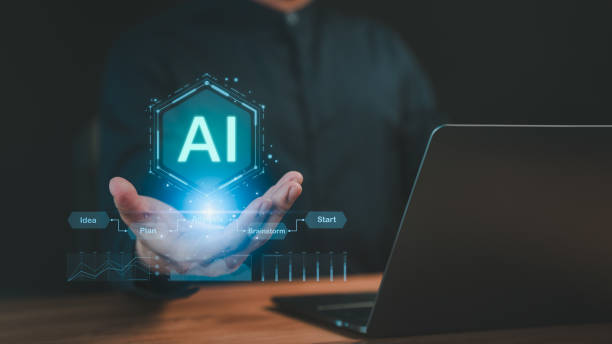
One of the main concerns regarding artificial intelligence is its impact on existing jobs.
Some jobs, especially those involving repetitive and routine tasks, are at risk of automation.
Jobs such as telephone operators, data entry clerks, and certain manufacturing roles may be fully or partially replaced by AI.
However, AI also creates new opportunities for job creation.
Roles like data scientist, machine learning engineer, AI specialist, and robot designer are emerging and growing.
These jobs require specialized skills in AI, programming, mathematics, and statistics.
In addition to specialized jobs, AI can also lead to the creation of new jobs in fields such as education, healthcare, and art.
For example, teachers can use AI to personalize education and provide better feedback to students.
Doctors can use AI for more accurate disease diagnosis and more effective treatments.
Artists can use AI to create new and innovative artworks.
Therefore, the future of AI careers is not only a threat to existing jobs but also an opportunity to create new and creative jobs.
For a better understanding, refer to the table below:
| Jobs at Risk | New Jobs |
|---|---|
| Telephone Operator | Data Scientist |
| Data Entry Clerk | Machine Learning Engineer |
| Certain Manufacturing Jobs | AI Specialist |
| Taxi Driver | Robot Designer |
Ultimately, the future of AI careers necessitates that individuals can keep their skills updated and adapt to new technologies.
Continuous learning and acquiring new skills will be the key to success in the future world of work.
Essential Skills for Success in the Age of Artificial Intelligence
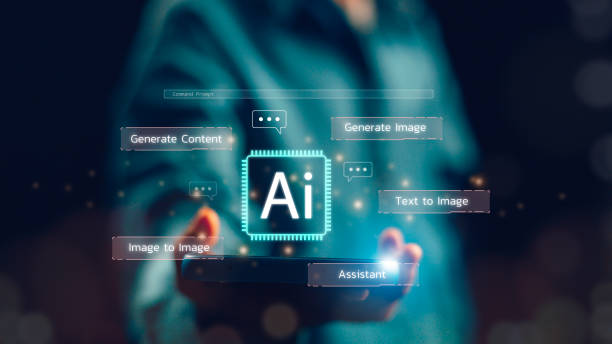
To succeed in the future of AI careers, technical knowledge alone is not enough.
Soft skills are equally important.
Problem-solving, critical thinking, creativity, communication, and teamwork are among the skills that will be highly valued in the age of AI.
AI can perform many routine tasks, but it cannot replace human ability to solve complex problems, think critically, and generate innovative ideas.
Furthermore, the ability to communicate effectively and work in teams is essential for collaborating with colleagues and clients.
Moreover, continuous learning and adaptability to change are also very important.
AI is rapidly evolving, and individuals must continuously update their skills and adapt to new technologies.
This requires a growth mindset, a willingness to experiment and make mistakes, and the ability to learn from errors.
For example, the table below lists some essential skills in the age of AI:
| Hard Skills | Soft Skills |
|---|---|
| Programming | Problem-Solving |
| Statistics and Mathematics | Critical Thinking |
| Machine Learning | Creativity |
| Data Analysis | Communication |
| Teamwork | |
| Continuous Learning |
Consequently, investing in the development of soft skills and continuous learning is essential to ensure success in the future of AI careers.
Does your current e-commerce website design not generate the expected sales?
Rasaweb is a specialist in professional e-commerce website design!
✅ An attractive and user-friendly website aimed at increasing sales
✅ High speed and security for an ideal shopping experience⚡ Get a free consultation for online store design with Rasaweb!
Workforce Training and Development to Meet AI Challenges
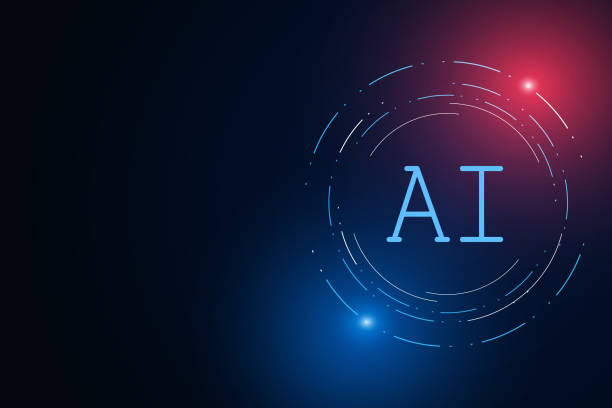
To fully capitalize on AI’s potential and mitigate its negative effects on jobs, investment in workforce training and development is essential.
Educational programs should help individuals acquire the necessary skills to work with AI.
These programs should include training in programming, statistics, machine learning, and other relevant technical skills.
Additionally, training programs should also focus on developing soft skills such as problem-solving, critical thinking, and creativity.
Furthermore, governments and organizations must provide opportunities for continuous learning and skill enhancement.
These opportunities can include online courses, workshops, conferences, and other related events.
Moreover, support systems should be established for individuals who lose their jobs.
These systems can include retraining, financial aid, and other support services.
By investing in workforce training and development, it can be ensured that individuals are prepared to meet the challenges of the future of AI careers and can benefit from the new opportunities this technology creates.
Ultimately, collaboration among government, industry, and academia is crucial for developing appropriate training programs and creating continuous learning opportunities.
Through this collaboration, a skilled and specialized workforce capable of competing in the future of AI careers can be cultivated.
The Future of AI Careers: An Opportunity for Entrepreneurship and Innovation
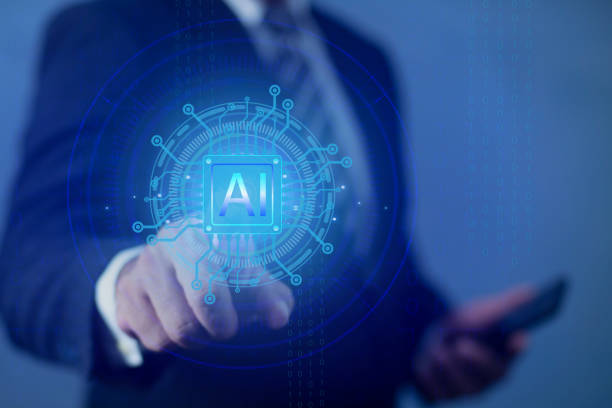
Artificial intelligence not only transforms existing jobs but also creates new opportunities for entrepreneurship and innovation.
Individuals can use AI to launch new startups, develop innovative products and services, and solve social problems.
AI can help entrepreneurs automate their business processes, make better decisions, and offer products and services that meet customer needs.
For example, an entrepreneur can use AI to create a personalized recommendation system that helps customers find products and services they are interested in.
Another entrepreneur can use AI to develop a fraud detection system that helps companies prevent financial losses.
Yet another entrepreneur can use AI to create a smart energy management system that helps homes and buildings reduce their energy consumption.
These are just a few examples of the countless opportunities that AI provides for entrepreneurship and innovation.
To benefit from these opportunities, individuals must acquire the necessary knowledge and skills and be willing to take risks and experiment with new ideas.
Governments and organizations can also support the development of entrepreneurship and innovation in AI by providing financial assistance, entrepreneurial training, and other support services.
By promoting entrepreneurship and innovation, it can be ensured that the future of AI careers is not just a challenge, but a great opportunity for economic growth and development.
Ethical and Social Challenges of Artificial Intelligence and its Impact on Employment
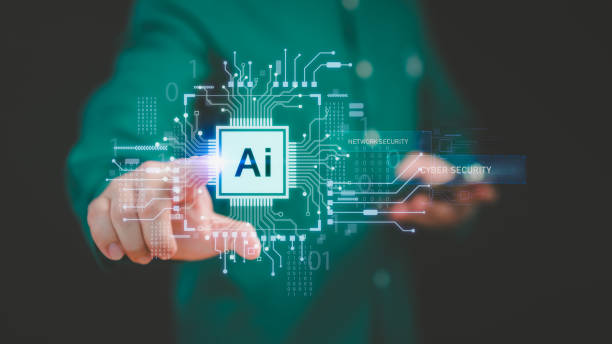
Along with remarkable advancements in artificial intelligence, significant ethical and social challenges also arise.
One such challenge is algorithmic bias.
AI algorithms, based on the data they are trained on, may make decisions that lead to discrimination against specific groups of people.
For example, an AI-powered hiring system might inadvertently favor men over women.
Another challenge is privacy.
AI systems often require collecting and analyzing vast amounts of personal data, which can lead to privacy violations.
Furthermore, AI can exacerbate economic inequality.
If AI is used solely to automate low-skill jobs, it may lead to a decrease in job opportunities for low-skilled individuals and an increase in income for high-skilled individuals.
To address these challenges, laws and regulations must be enacted to prevent discrimination, protect privacy, and help reduce economic inequality.
Additionally, more research should be conducted on AI ethics to ensure the responsible and fair use of this technology.
The future of AI careers must be designed to benefit everyone and contribute to social justice.
Ultimately, the future of AI careers requires serious attention to ethical and social issues to prevent its potential negative consequences and fully harness its benefits.
Government Policies and their Role in Managing AI’s Impact on the Labor Market
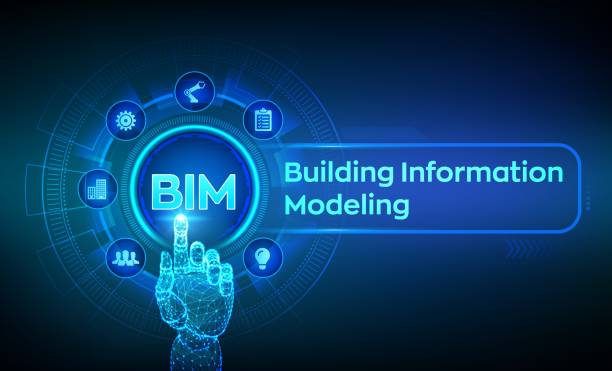
Governments play a crucial role in managing the effects of artificial intelligence on the labor market.
Governments can support individuals by investing in workforce training and development, helping them acquire the necessary skills to work in the future of AI careers.
Governments can also assist businesses in adopting AI technologies and using them to create new jobs by providing financial support.
Furthermore, governments can protect workers’ rights and prevent the misuse of AI by enacting laws and regulations.
These laws can include regulations concerning privacy rights, discrimination, and algorithmic accountability.
Governments can also promote responsible and fair AI development by fostering collaboration among academia, industry, and government.
With appropriate policymaking, governments can ensure that the future of AI careers is not merely a threat, but an opportunity for economic growth and improved lives for people.
Ultimately, the future of AI careers requires a comprehensive and coordinated approach from governments, industry, and society to fully harness the benefits of this technology and prevent its potential negative consequences.
Do you dream of a thriving online store but don’t know where to start?
Rasaweb is your comprehensive e-commerce website design solution.
✅ Attractive and user-friendly design
✅ Increased sales and revenue⚡ Get a free consultation!
Case Studies of Leading Companies and Organizations Using Artificial Intelligence
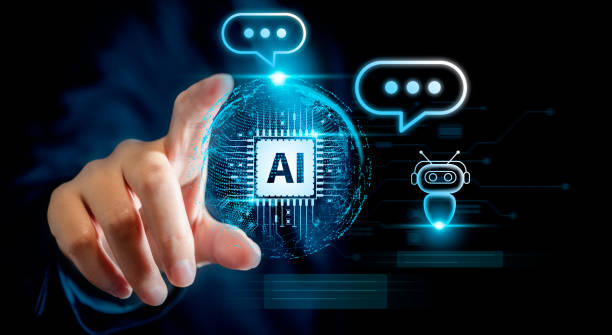
Examining how leading companies and organizations use AI can provide valuable lessons for others.
Companies like Google, Amazon, and Microsoft use AI to improve their products and services, automate processes, and create new opportunities.
For example, Google uses AI to enhance search results, translate languages, and develop self-driving cars.
Amazon uses AI to improve recommendation systems, manage supply chains, and provide customer services.
These companies, by investing in AI research and development and hiring skilled professionals, have fully leveraged the benefits of this technology.
In addition to technology companies, other organizations also use AI to improve their performance.
For example, hospitals use AI for more accurate disease diagnosis and to provide more effective treatments.
Universities use AI to personalize education and provide better feedback to students.
By examining these cases, success patterns can be identified and used to design and implement AI projects in other organizations.
The future of AI careers is heavily dependent on learning from the experiences of pioneers in this field.
Consequently, case studies of leading companies and organizations using AI can offer valuable guidance to other organizations and help them utilize this technology more effectively.
This is extremely important for success in the future of AI careers.
Future Outlook: AI and the World of Work in the Coming Years
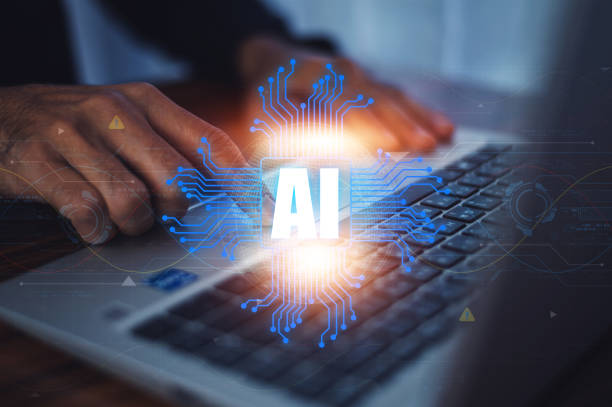
Accurately predicting the future of AI careers is challenging, but some trends and developments are foreseeable.
AI is expected to increasingly penetrate various industries and have profound effects on how work is done.
Jobs involving repetitive and routine tasks are highly likely to be automated by AI.
Jobs requiring creative skills, critical thinking, and problem-solving will remain for humans.
However, even these jobs may transform with the use of AI.
For example, AI can help doctors make more accurate diagnoses, assist lawyers in better preparing their cases, and enable teachers to personalize education.
In the future, individuals must keep their skills updated and adapt to new technologies.
Continuous learning, flexibility, and teamwork will be among the most valuable skills in the future world of work.
Furthermore, attention must be paid to the ethical and social issues of AI to ensure its responsible and fair use.
Ultimately, the future of AI careers is a great opportunity for economic growth and improving people’s lives, provided that we can properly manage its challenges and fully leverage its benefits.
To achieve this goal, collaboration among government, industry, academia, and society is essential.
Frequently Asked Questions
| Question | Answer |
|---|---|
| What impact will AI have on the future job market? | AI will automate repetitive jobs, but at the same time, it will create new and more complex jobs in areas such as the development, maintenance, and training of AI systems. |
| Which jobs are most at risk of being replaced by AI? | Jobs involving repetitive, rule-based tasks with low requirements for creativity or emotional intelligence, such as certain manufacturing jobs, data entry, and simple customer service, are most at risk. |
| What skills are essential for success in the future job market with AI? | Skills such as critical thinking, complex problem-solving, creativity, emotional intelligence, data literacy, the ability to work with AI, and lifelong learning are highly important. |
| Will AI cause widespread unemployment? | Some jobs will disappear, but history has shown that new technologies, instead of causing widespread unemployment, reshape the job market and create new jobs. The need for adaptation and retraining is crucial. |
| What new job opportunities are emerging with the rise of AI? | Jobs such as Machine Learning Engineer, Data Scientist, AI Ethicist, Human-AI Interaction Designer, and Digital Transformation Consultant are among the new opportunities. |
| What is the role of education in preparing for the future job market with AI? | Education must focus on developing soft skills, computational thinking, digital literacy, and the ability for continuous learning to prepare individuals for future changes. |
| How can I prepare myself for changes in the job market caused by AI? | You can prepare yourself by learning new skills related to AI and data, strengthening soft skills, developing critical thinking and creativity, and adopting lifelong learning habits. |
| Will AI ethics become an important career field? | Yes, given the increasing concerns about biases, privacy, and automated decision-making in AI, the role of AI ethics specialists will become crucial to ensuring its responsible development. |
| What is the importance of human-AI collaboration in the future of work? | Human-AI collaboration, rather than competition, will shape the future of the job market. AI can be a tool to increase productivity and allow humans to focus on more complex and creative tasks. |
| Which industries will be most affected by AI? | Almost all industries will be affected, but sectors such as healthcare, finance, transportation, manufacturing, education, and customer service are pioneers in AI adoption and transformation. |
And other advertising services from Rasaweb Advertising Agency:
- Smart Link Building: An innovative service for increasing user engagement through intelligent data analysis.
- Smart Sales Automation: A fast and efficient solution for customer behavior analysis with a focus on precise audience targeting.
- Smart Advertising Campaign: A fast and efficient solution for customer behavior analysis with a focus on marketing automation.
- Smart Advertising Campaign: Designed for businesses looking to improve SEO ranking through intelligent data analysis.
- Smart Digital Advertising: A combination of creativity and technology to attract customers through marketing automation.
And over hundreds of other services in internet advertising, advertising consultation, and organizational solutions
Internet Advertising | Advertising Strategy | Advertorial
Sources
AI Career Path: From Learning to Employment
The Future of Artificial Intelligence and Employment
The Future of AI Careers
The Future of AI Employment Status
? To shine in the digital world and achieve peak success, Rasaweb Afarin Digital Marketing Agency offers comprehensive services including professional website design and SEO, accompanying you to elevate your business to the position it deserves.
📍 Tehran, Mirdamad Street, next to Bank Markazi, Southern Kazeroun Alley, Ramin Alley, No. 6

